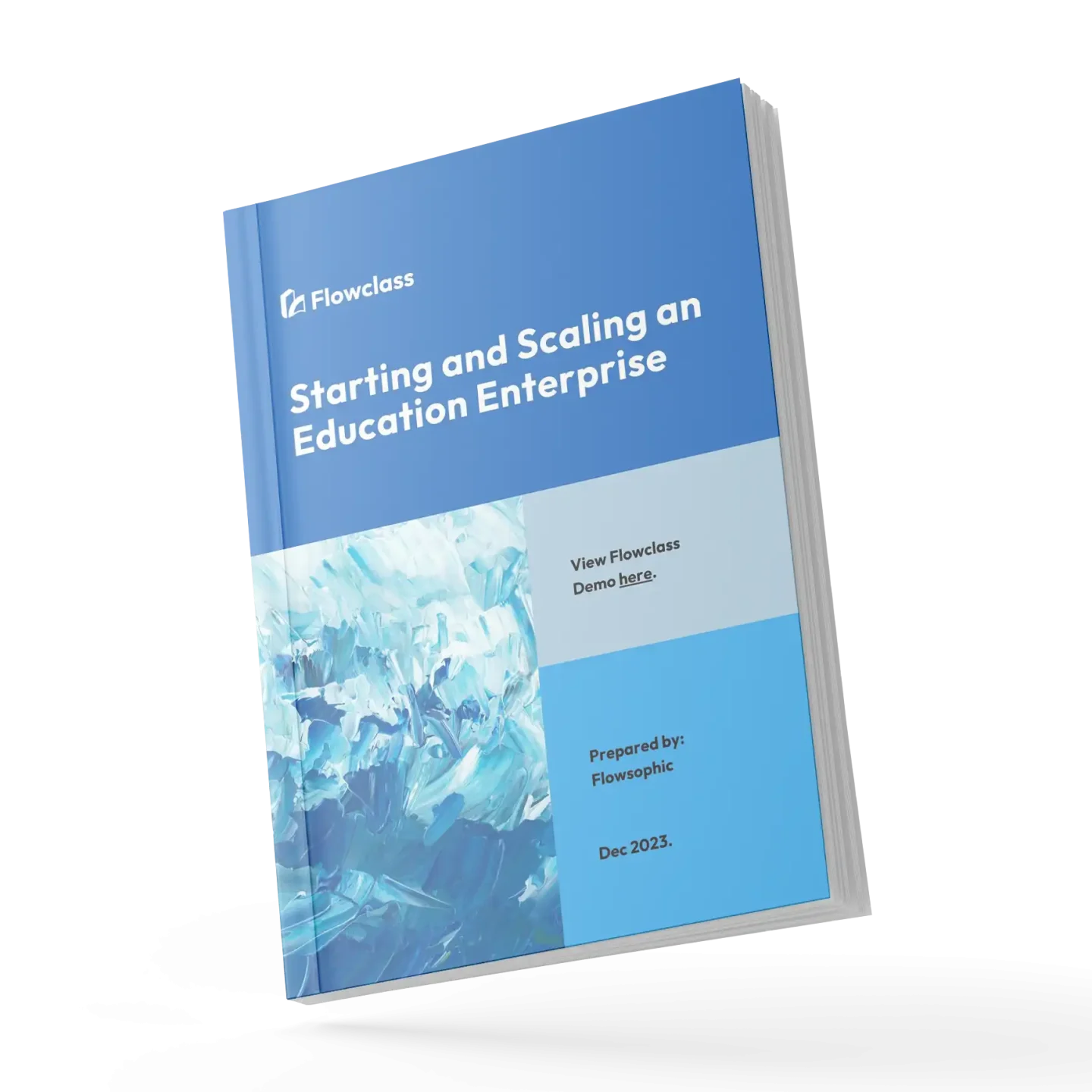In the evolving landscape of online and in-person education, ensuring students complete their courses is a top priority for educators and institutions. Course completion rates directly impact the credibility and success of educational programs, making it essential for institutions to implement strategies that keep students engaged and on track. One of the most effective ways to enhance course completion rates is by leveraging a Student CRM. This powerful tool helps track student progress, automate communication, and provide personalized support to ensure learners stay engaged and motivated throughout their academic journey.
What is a Student CRM?
A Student CRM (Customer Relationship Management system) is a specialized software designed for educational institutions and training providers to manage student interactions, track progress, and automate workflows. Unlike traditional CRMs used in business, a Student CRM focuses on engagement, communication, and retention strategies tailored specifically for students. This system streamlines administrative tasks while also offering insights into student behavior, enabling institutions to implement data-driven interventions that help improve student success rates.

How a Student CRM Improves Course Completion Rates
1. Automated Reminders and Notifications
One of the primary reasons students drop out of courses is forgetfulness or lack of time management. A Student CRM can automate reminders about upcoming deadlines, assignments, and exams via emails, SMS, or in-app notifications, helping students stay on track. These reminders can be tailored based on student activity, ensuring that each learner receives relevant and timely prompts that reinforce accountability and encourage consistent participation.
2. Personalized Communication and Engagement
Every student has unique learning needs and challenges. With a Student CRM, institutions can send tailored messages, provide customized resources, and address individual concerns to create a more engaging learning experience. Personalized communication fosters a sense of connection between students and educators, making learners feel valued and supported. This personalized approach significantly enhances student motivation and their willingness to complete courses successfully.
3. Tracking and Analyzing Student Progress
A Student CRM enables educators to monitor student engagement levels, track participation in discussions, and analyze quiz and assignment performance. This data helps identify struggling students early and intervene before they disengage from the course. By leveraging performance analytics, institutions can proactively support students through targeted interventions, such as offering additional resources, scheduling one-on-one mentorship, or adjusting course materials to cater to different learning styles.
4. Automated Support and FAQs
Rather than waiting for students to ask for help, a Student CRM can provide automated responses to common queries and offer self-service support options. This ensures that students receive immediate assistance, reducing frustration and dropout rates. AI-driven chatbots integrated into CRMs can also assist students with administrative tasks, such as course enrollment and grading queries, freeing up instructors to focus on providing high-quality education.
5. Better Teacher-Student Collaboration
A Student CRM facilitates seamless communication between instructors and students, making it easier to provide feedback, share additional resources, and schedule one-on-one sessions when needed. By offering an efficient and organized platform for student-teacher interactions, CRMs help maintain transparency and ensure that students receive timely guidance, ultimately improving course completion rates.

Key Features of a Student CRM That Enhance Course Completion
– Integrated Messaging System
Having built-in email, SMS, and chat functionalities ensures timely and effective communication with students, helping them stay connected with instructors and peers.
Example: An online coding bootcamp uses a Student CRM to send automated chat messages whenever a student has not logged into the platform for more than three days. This re-engagement strategy helps increase course completion rates significantly by proactively encouraging students to return and resume their learning.
– Progress Tracking Dashboards
Educators can view student progress in real-time and take necessary actions to prevent disengagement.
Example: A university offering hybrid courses utilizes a Student CRM to track attendance, quiz scores, and participation in discussion forums. The system flags students with declining performance, prompting advisors to intervene early and offer additional tutoring or counseling services to support student success.
– Automated Enrollment and Onboarding
Simplify student registration and onboarding by automating enrollment confirmations, welcome emails, and introductory resources.
Example: A professional certification course provider uses a Student CRM to send personalized onboarding emails with step-by-step guides, video tutorials, and FAQs. This improves student engagement from the start and reduces dropout rates by ensuring that students feel prepared and confident as they begin their courses.
– AI-Powered Student Support
Leverage artificial intelligence to predict student behavior and offer proactive interventions for at-risk learners.
Example: An e-learning platform integrates an AI chatbot into its Student CRM to answer student queries instantly. The AI analyzes student engagement levels and suggests additional study materials if a student struggles with a topic. By providing tailored recommendations, the platform helps students overcome learning obstacles and stay motivated to complete their courses.
– Multi-Channel Notifications
Send alerts through various communication channels to ensure students never miss important course updates.
Example: A language learning platform uses a Student CRM to send SMS reminders for live classes, email follow-ups with class summaries, and push notifications for practice quizzes. This multi-channel approach keeps students engaged and on track, ensuring they are consistently interacting with course content.

Best Practices for Using a Student CRM to Boost Course Completion
1. Set Clear Goals and Milestones
Use a Student CRM to define clear learning objectives and track students’ progress toward course completion. Setting achievable milestones helps students stay motivated and measure their own progress throughout the course.
2. Encourage Active Participation
Gamify learning, introduce discussion forums, and conduct interactive activities to maintain student interest. Engaged students are more likely to stay committed to their courses and complete their learning journey.
3. Offer Personalized Learning Paths
Customize course content based on student performance and learning preferences to improve engagement. Adapting course materials to cater to different learning styles ensures that all students receive an optimal learning experience.
4. Provide Timely Interventions
Use analytics to identify students who need extra support and reach out before they disengage. Offering one-on-one mentorship, tutoring sessions, or additional resources at the right time can prevent dropouts and improve completion rates.
5. Utilize Feedback for Continuous Improvement
Collect student feedback through surveys and polls to improve course content and the learning experience. Understanding student needs and addressing pain points helps create a more effective and student-friendly learning environment.
Conclusion
A Student CRM is a game-changer for educators and training providers looking to enhance student engagement and boost course completion rates. By automating reminders, providing personalized support, and tracking student progress, institutions can ensure students stay motivated and achieve their learning goals.
FAQ on Student CRM and Course Completion
What is the main benefit of using a Student CRM?
A Student CRM helps improve student engagement, retention, and course completion rates by automating communication, tracking student progress, and offering personalized support.
Can a Student CRM be used for both online and offline courses?
Yes, a Student CRM is beneficial for managing students in both online and in-person learning environments. It provides tools for tracking attendance, engagement, and performance, regardless of course format.
How does a Student CRM prevent dropouts?
By sending automated reminders, providing personalized support, and tracking student progress, a Student CRM helps identify and assist students before they disengage from their courses.
Is a Student CRM difficult to implement?
Most modern Student CRMs, like those offered by Flowclass, are user-friendly and can be seamlessly integrated into existing education management systems.
How can I choose the best Student CRM for my institution?
Consider features such as automation, analytics, messaging capabilities, and ease of integration when selecting a Student CRM to best suit your educational needs.


